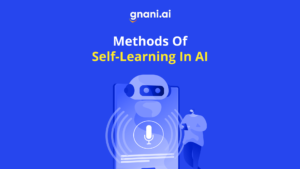Artificial Intelligence (AI) has rapidly evolved in recent years, transforming various industries and revolutionizing the way we live and work. One of the key advancements in AI technology is the development of self-learning AI systems. These systems possess the ability to learn and improve their performance without explicit programming, becoming more intelligent over time. In this article, we will dive into the fascinating world of self-learning AI systems and explore their potential implications.
Understanding Self-Learning AI Systems
Self-learning AI systems, also known as machine learning, leverage algorithms and statistical models to analyze vast amounts of data and identify patterns, enabling them to make predictions and decisions without being explicitly programmed for each scenario. Unlike traditional software that relies on pre-defined rules, self-learning AI systems learn from data and experience, continuously refining their performance through a process called training.
Training a self-learning AI system involves feeding it with relevant data and desired outcomes, allowing it to discover correlations and develop predictive models. As the system receives more data and feedback, it refines its models, improving its ability to make accurate predictions or decisions over time. This autonomous learning ability sets self-learning AI systems apart from their predecessors, making them highly adaptable and capable of handling complex tasks.
The Benefits of Self-Learning AI Systems
The use of self-learning AI systems in various industries offers numerous advantages:
1. Advanced Automation and Efficiency:
Self-learning AI systems can automate repetitive and mundane tasks, freeing up human resources to focus on more complex tasks. By continuously analyzing and improving their performance, these systems can enhance efficiency and minimize errors, leading to increased productivity and cost savings.
2. Enhanced Decision Making:
Self-learning AI systems have the potential to provide valuable insights and predictions, aiding decision-making processes. By analyzing vast amounts of data in real-time, these systems can identify trends, detect anomalies, and offer recommendations, enabling businesses to make data-driven decisions with greater accuracy and speed.
3. Personalized Experiences:
Self-learning AI systems can be employed to create personalized experiences for customers. By analyzing user data and preferences, these systems can tailor recommendations, advertisements, and user interfaces, resulting in a more customized and engaging experience.
4. Continuous Improvement:
Self-learning AI systems improve with time and experience. By continuously learning from new data and feedback, these systems adapt to changing circumstances, making them well-suited for dynamic environments. This self-improvement capability enables them to stay up-to-date and deliver optimal performance, even as conditions evolve.
Possible Challenges and Ethical Considerations
While self-learning AI systems hold immense potential, there are some challenges and ethical considerations that need to be addressed:
1. Data Privacy and Security:
Self-learning AI systems heavily rely on vast amounts of data, often personal or sensitive information. Ensuring proper data privacy protection and implementing robust security measures is crucial to prevent unauthorized access or misuse of the data.
2. Bias and Fairness:
Self-learning AI systems may inadvertently perpetuate biases present in the data they are trained on. It is essential to ensure that these systems do not discriminate or reinforce existing social, racial, or gender biases. Regular monitoring and auditing of the system’s output can help identify and mitigate any biases that may arise.
3. Lack of Transparency:
Understanding how self-learning AI systems arrive at their decisions can be challenging, often referred to as the “black box” problem. Enhancing transparency and interpretability is crucial to build trust and ensure accountability, especially in applications where decisions have significant impact, such as healthcare or finance.
The Future of Self-Learning AI Systems
As the field of AI continues to advance, self-learning AI systems are anticipated to play a pivotal role in shaping the future. Improvements in computational power, availability of vast datasets, and advancements in algorithms will further enhance the capabilities of these systems.
In the future, we can expect self-learning AI systems to become even more intelligent, capable of solving complex problems and making autonomous decisions with minimal human intervention. These systems could revolutionize healthcare, transportation, finance, and many other industries, ushering in a new era of efficiency, optimization, and innovation.
However, as with any rapidly emerging technology, it is crucial to proceed with caution and address the ethical, legal, and societal implications associated with self-learning AI systems. Collaborative efforts between tech companies, researchers, policymakers, and the wider society are essential to ensure that these systems are developed and deployed responsibly, benefiting humanity as a whole.
In conclusion, self-learning AI systems hold tremendous potential for transforming our world in remarkable ways. Their ability to autonomously learn and adapt makes them powerful tools in various industries. However, careful consideration should be given to the challenges and ethical concerns that arise, ensuring that these systems are developed and utilized responsibly. By responsibly harnessing the power of self-learning AI systems, we can pave the way for a future filled with innovation, efficiency, and improved decision-making.

